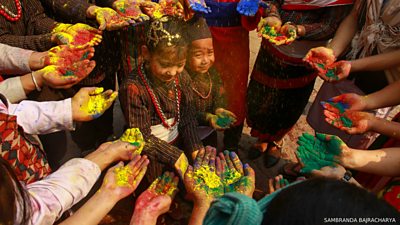Downloads
Authors: Kiran Bhandari, Dipak Bhattarai and James Deane
Publication date: September 2016
Overview: The media has always played a role in shaping the nation of Nepal. Now, in 2016, as a new political settlement continues to be negotiated, that role may prove to be as important as at any time in the country’s history. Based on more than 25 interviews with leading members of Nepal’s media, government, civil society and international development communities as well as audience research carried out by ���˿��� Media Action, this briefing explores some of the key challenges facing the Nepali media. It outlines growing concerns over politicisation and co-option, particularly of the mainstream Kathmandu-based media, as well as other economic and technological challenges facing the media. The briefing further outlines how Nepal’s historically diverse and decentralised media market is increasingly showing signs of fragmentation and discord. It also examines the role that the international development community has played in supporting the Nepali media.
The briefing finds that:
- For all the challenges outlined in this report, the media – both nationally and locally – continues to constitute one of the most important and effective mechanisms available to improve accountability.
- Despite rising threats to journalist safety and growing concerns over politicisation, the media remains most trusted institution in Nepal.
- The media provides both a growing problem for and a potentially vital solution to the challenges of social cohesion in the country.
- At present, there is not a sufficient advertising market to sustain a free and independent media that can both serve the public interest and withstand intense political pressures.
- Development actors are in a position to help to address this market failure if they invest in an independent, Nepali-rooted media that enables difficult and challenging debate to take place.
